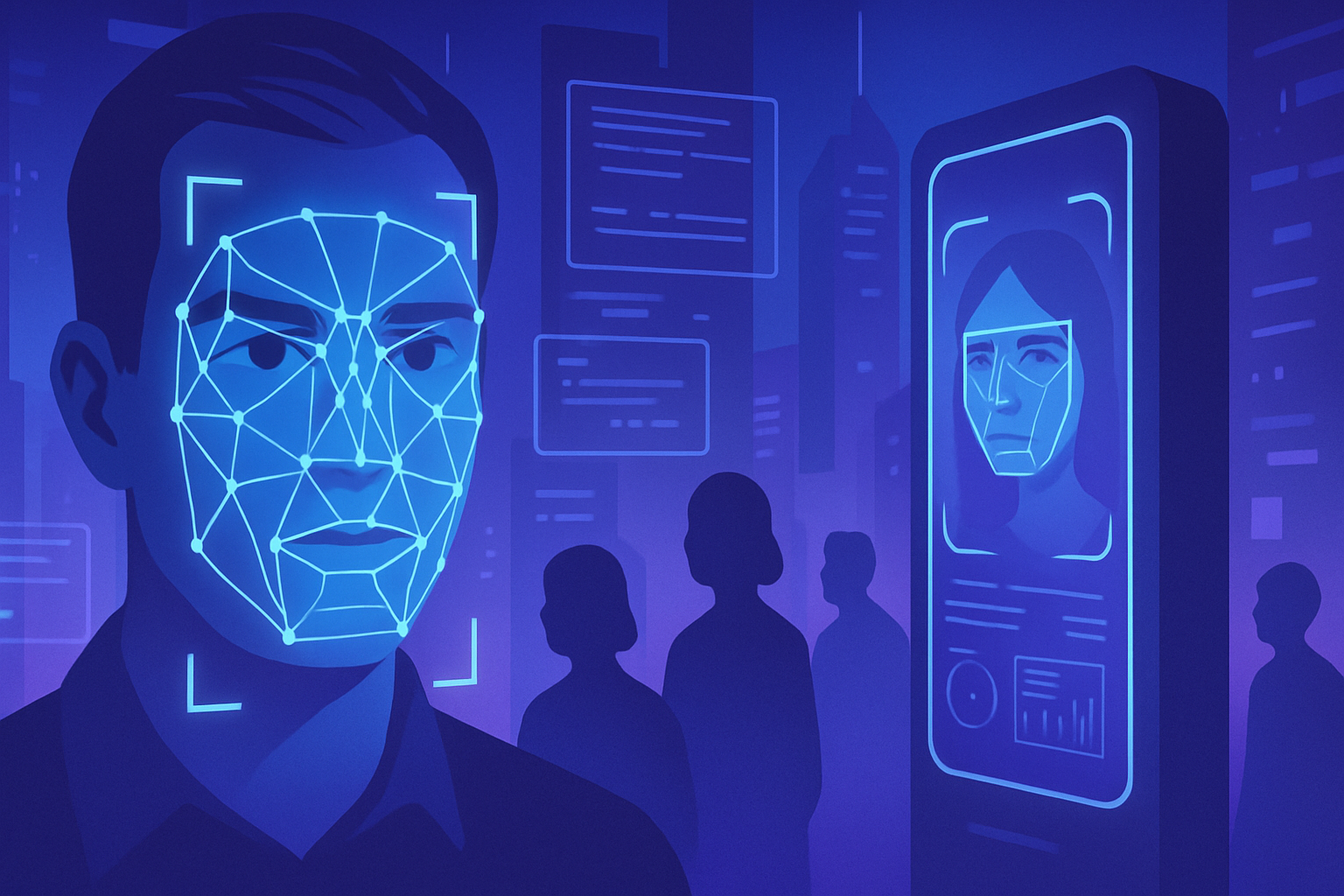Facial recognition is sweeping through democracies, challenging established norms and raising concerns. Its integration into surveillance is unprecedented, manipulating public and private spheres. The issues at hand, such as privacy protection, the lack of a legal framework, and the risk of human rights violations, exacerbate an already heated debate. Recent incidents in the United Kingdom illustrate this technological and social drift, where automated systems transmit their suspicions indiscriminately. _The fight for fair regulation becomes essential_, thus slowing this potentially harmful evolution.
Deployment of facial recognition in democracies
Facial recognition is becoming widespread in democratic countries, notably in the United Kingdom and the United States. These nations, both public and private, use this technology for various reasons. From police forces to retailers, the deployment is massive and growing. However, the absence of an acceptable legal framework raises ethical and privacy concerns.
Application cases and consequences
A significant incident occurred in Salford, where Danielle Horan, a hair salon owner, was falsely identified as an offender. At the entrance of a store, facial recognition cameras identified her as a thief based on an error. This type of situation illustrates the risks associated with technology deployed without adequate regulations. The accused individual must fight against unjust stigmatization generated by these systems.
Police forces in the United Kingdom acknowledge an increase in the use of facial recognition since 2023. This process is becoming a tool, but its use without adequate oversight is sometimes problematic. Facial recognition systems, if misused, can lead to biases against minority groups and exacerbate discrimination.
Reactions from experts and civil society
Experts are concerned about the lack of legislation governing this technology. Daragh Murray, a specialist at Queen Mary University of London, emphasizes that the priority should be the protection of human rights. The debates surrounding facial recognition highlight the need for a balance between public safety and respect for individual freedoms.
Civil rights organizations advocate for rigorous regulation that would ensure the transparency of the algorithms used. The enforcement of data protection policies is essential in the implementation of surveillance technologies. The growing distrust of the public towards authorities could undermine the anticipated benefits of this technology.
Comparison with the European Union
In contrast, the European Union has chosen to adopt a more cautious approach regarding the use of facial recognition. Restrictive regulations have been put in place to protect citizens’ rights. The European data protection regulation establishes strict standards concerning the processing of personal information.
As the United Kingdom and the United States advance further in integrating this technology, Europe underscores the importance of a solid legislative framework. This divergence exemplifies the tensions between technological innovation and legal protections.
Future perspectives and necessary legislation
Given this trend, legislative reflection becomes necessary. The British government fails to register the use of artificial intelligence in a mandatory registry. This gap risks exacerbating potential abuses related to facial recognition, particularly due to a lack of accountability for companies exploiting this technology.
Initiatives such as funding for artificial intelligence by companies are underway, like the $10 billion commitment from Honor. However, it is essential that such technological advancements be accompanied by a legal framework that preserves the fundamental rights of citizens.
Conclusion on measures to be taken
The issues raised by the use of facial recognition require in-depth discussions. Technological innovation must integrate ethical considerations, all in service of protecting individual freedoms. Collective vigilance is crucial for navigating this constantly evolving landscape. For more information on these issues, explore articles such as those from Actu.ai and other relevant analyses.
Frequently asked questions about facial recognition and its use in democracies
What is facial recognition and how does it work in the context of democracies?
Facial recognition is a technology that identifies or verifies a person’s identity from their image. In democracies, it is often used by law enforcement to enhance public safety, but its use is subject to debate due to privacy and civil rights concerns.
Why is facial recognition rapidly developing in democratic countries?
Facial recognition is rapidly developing in democratic countries due to technological advancements, a growing demand for effective security solutions, and its integration into various public services, although this is done without a specific legal framework governing its use.
What are the risks associated with the use of facial recognition in democracies?
The risks include the possibility of false identifications, increased and intrusive surveillance, violations of privacy, and potential systemic discrimination through algorithmic biases present in facial recognition systems.
Are there regulations in place to limit the use of facial recognition in democracies?
In many countries, there are still no comprehensive regulations regarding the use of facial recognition, leaving a legal void that raises significant ethical issues and concerns about the protection of personal data. However, some governments are considering enacting laws to regulate this technology.
How does facial recognition impact civil rights and individual freedom?
The use of facial recognition can negatively impact civil rights and individual freedom by enabling mass surveillance, restricting freedom of expression, and creating an atmosphere of distrust within society.
What are experts’ opinions on the use of facial recognition in democracies?
Experts are divided on this issue; some highlight its potential to enhance security, while others warn against human rights violations and the lack of adequate legal protections. A consensus is emerging on the urgent need for a legal framework to regulate its use.
What concrete examples of facial recognition use in democracies currently exist?
Examples include security systems at airports, surveillance cameras in public spaces, and applications by police forces to track wanted criminals or solve criminal cases.
How can the public protect itself against the abusive use of facial recognition?
The public can protect itself by staying informed about the laws surrounding facial recognition, supporting initiatives and organizations advocating for privacy protection, and demanding accountability from public and private entities regarding the use of these technologies.






